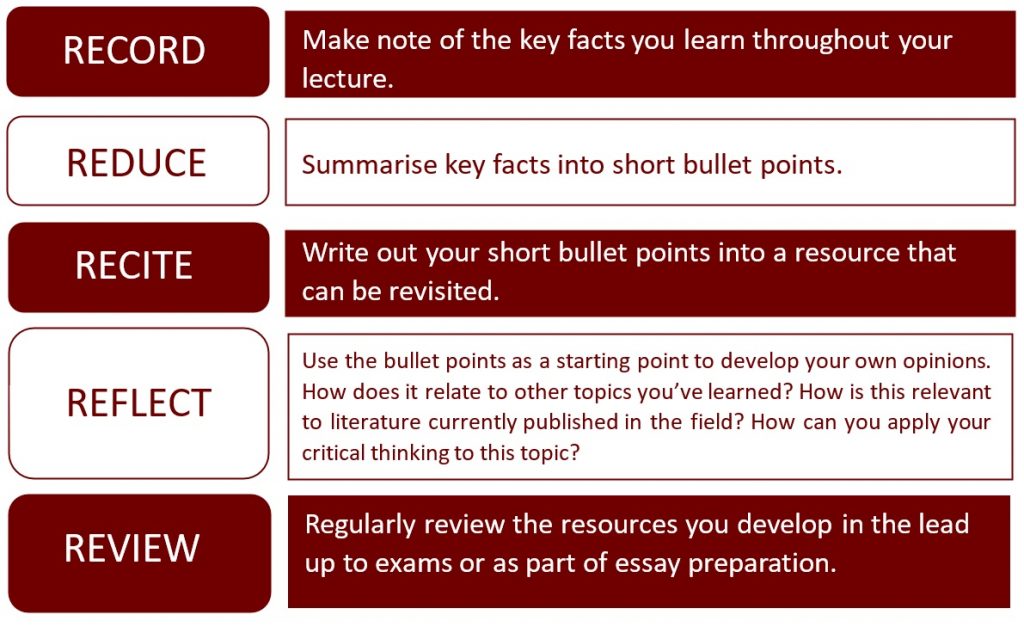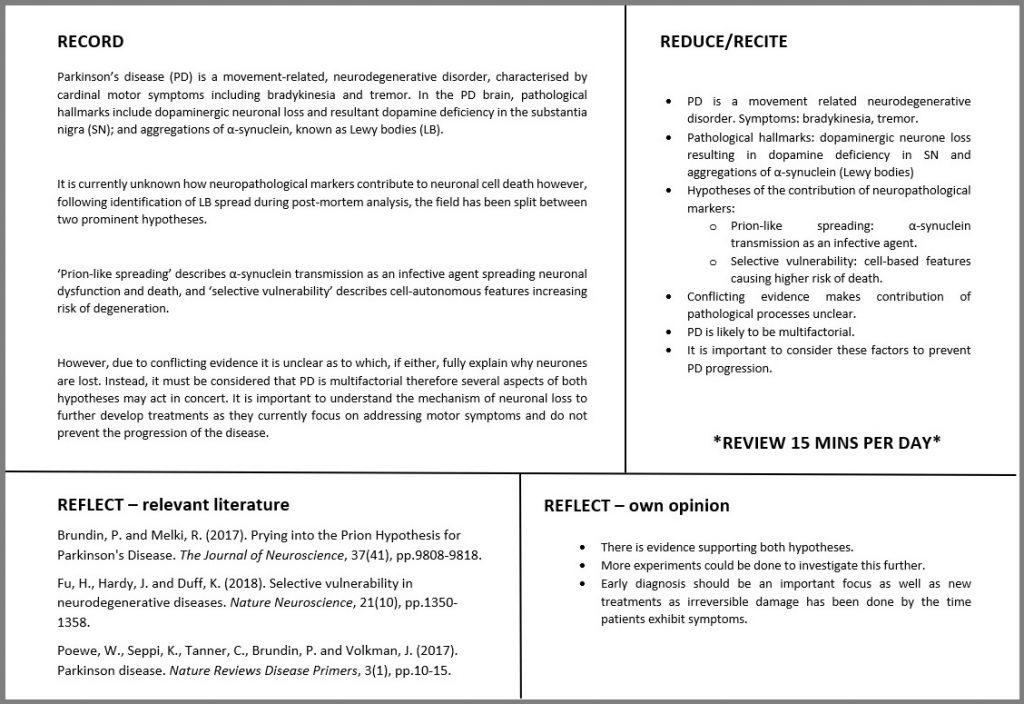 by Gloria Bosi, Mechanical Engineering student and Bristol Futures Advocate
by Gloria Bosi, Mechanical Engineering student and Bristol Futures Advocate
While a lot of us were lucky to make a long-awaited return to campus this year, hybrid learning means that pre-recorded lectures are still a core part of our academic lives. With new videos coming every week, efficient notetaking is an essential skill to have. It’s not always as easy as it seems! You want to write just enough that you can understand your notes when you look back at them, but not so much that you are just copying the slides. You may also want to pause the video occasionally, but without tripling the time it takes for you to watch it. It’s a delicate balance that needs to be mastered. Lucky for you, I am here to help.
I’m Gloria, a third-year Mechanical Engineering student and Bristol Futures Advocate. With almost 2 years of online university under my belt, I want to share my top tips for taking notes from recorded lectures. I recommend trying the following things:
1. Doing the prep work
Skimming through the lecture slides before watching a recording helps me retain information better. I don’t own a tablet or printer, so there’s no easy way for me to take notes directly on the slides. Peeking in advance allows me to get a better look at any complicated diagrams or words that I need to write down. Once I know what to expect from the slides, I can focus better on what the lecturer is saying in the recording. Most importantly, skimming through the slides helps me build a mental picture of how I want to take notes for the topic.
2. Pausing with caution
Continuously pausing a lecture recording is dangerous business. It can easily double or triple the time it takes to finish watching. If this sounds familiar, try to be pickier about when you choose to pause the video. Ask yourself: did you really miss something that will stop you from understanding the topic as a whole? Another way to save time and avoid pauses is to come up with your own shorthand notations. Remember that your notes are not a textbook, and they don’t need to be written in full sentences. You’re the only one who needs to be able to understand them! If something confuses you or you happen to get stuck, don’t let that stop you from finishing the video. Write a post-it note or mark the sentence that confused you and keep watching. When you finish the lecture recording, you can ask about this on Blackboard discussion forums and return to it when you get a response.
3. Don’t be afraid to use colour!
Try using different coloured pens to distinguish between notes taken directly from the slides and those based off what the lecturer is saying. If you’re a visual learner like me, this can really help with information retention and memory.
4. Writing summaries
After a long note-taking session, don’t forget to write a brief summary of what you learnt. If possible, check this against the intended learning outcomes of the lecture to ensure you didn’t miss anything.
5. Finding what works for you
Don’t be afraid to try new methods. Remember that there’s no single right way of taking notes! In fact, the same method might not work across different modules if the content delivery varies. In this new hybrid learning environment, it’s especially important to diversify your note-taking approaches and find what works for you. Finally, if you’re not sure how to structure your notes by yourself, you can try an existing method, such as Cornell notes. You can read more about this here.
Hope you enjoyed the post, and leave a comment to let us know your best note-taking tips!



 By Molly Jackson, Translational Health Sciences student and Bristol Futures Advocate
By Molly Jackson, Translational Health Sciences student and Bristol Futures Advocate
